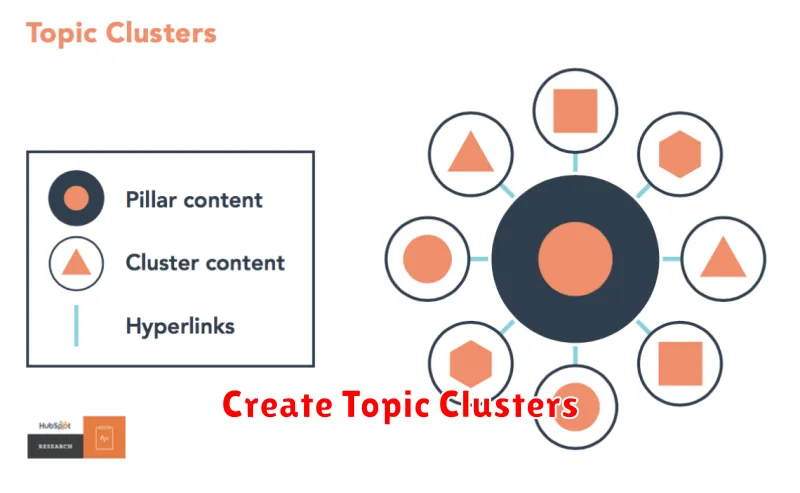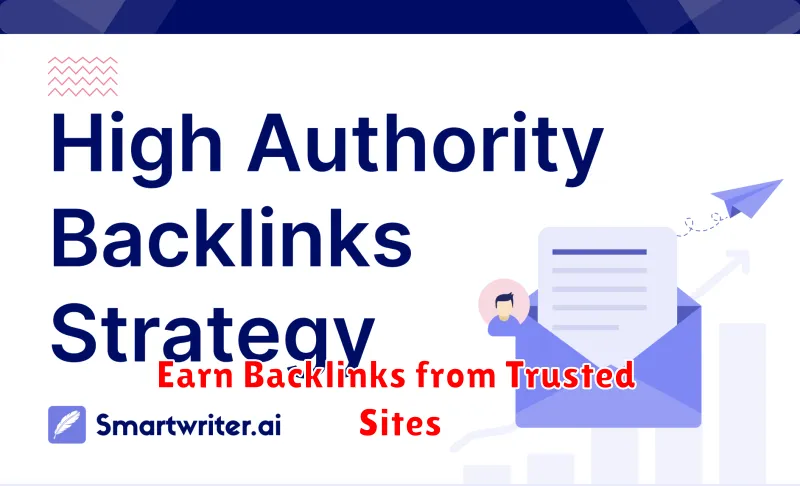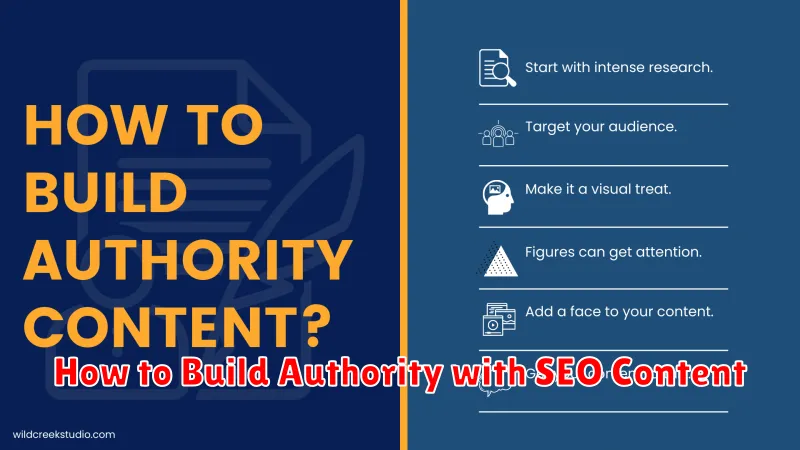In today’s digital landscape, establishing authority is paramount for online success. SEO content plays a crucial role in building that authority, allowing your website to rank higher in search engine results pages (SERPs) and attract a wider audience. This comprehensive guide will explore effective strategies to build authority with SEO content, ultimately driving more organic traffic and establishing your brand as a trusted leader in your industry.
Crafting SEO content that effectively builds authority requires a strategic approach. From meticulous keyword research and in-depth content creation to technical SEO optimization and consistent promotion, every step contributes to establishing your online presence as an authoritative voice. This article will delve into these key aspects, providing practical advice and actionable tips to help you leverage the power of SEO content and build a strong online authority.
What Is SEO Authority?
SEO authority is a composite metric used to evaluate the credibility of a website or webpage in the eyes of search engines. It’s a crucial factor in determining how well a site ranks in search results.
While there’s no single, definitive “authority score,” search engines use a complex algorithm considering various factors. These factors include the quality and relevance of content, the number and quality of backlinks pointing to the site, user engagement metrics, and technical aspects like site structure and security.
High SEO authority suggests to search engines that a website provides valuable and trustworthy information. This translates to higher rankings, increased visibility, and ultimately, more organic traffic.
Create Topic Clusters

Once you’ve identified your core topics, organize your content into topic clusters. A topic cluster consists of a pillar page, which covers a core topic broadly, and several cluster content pieces that delve into specific subtopics related to the pillar.
For example, if your pillar page is about “SEO Content,” cluster content could include topics like “Keyword Research,” “On-Page Optimization,” and “Content Promotion.” Each cluster content piece links back to the pillar page, and the pillar page links to all of its related cluster content.
This structure helps search engines understand the relationship between different pieces of content, establishing your website as an authoritative source on the core topic. It also provides a clear and organized pathway for users to navigate your content and learn more about subjects they are interested in.
Optimize Long-Form Content
Long-form content plays a crucial role in establishing authority. It allows for in-depth exploration of topics, demonstrating expertise and providing valuable insights to readers. This comprehensive approach naturally incorporates a wider range of relevant keywords, boosting search engine visibility.
Optimizing long-form content requires a strategic approach. Structure is key. Utilize headings (H3, H4, etc.) to break down the content into digestible sections, making it easier for both readers and search engines to navigate.
Keyword research is essential. Target a primary keyword and incorporate relevant secondary keywords throughout the text. However, avoid keyword stuffing. Focus on providing valuable information and maintaining a natural flow.
Readability is also paramount. Use clear and concise language, avoiding jargon. Break up large blocks of text with bullet points, lists, or tables to enhance visual appeal and improve comprehension.
Earn Backlinks from Trusted Sites

Earning backlinks from authoritative websites is crucial for building your website’s authority and improving search engine rankings. Trust is a key factor search engines consider when evaluating backlinks. A link from a trusted source signals to search engines that your content is valuable and credible.
Focus on acquiring backlinks from websites with a high Domain Authority (DA) and a strong reputation in your niche. These links carry more weight and have a greater impact on your SEO performance.
Some effective strategies for earning backlinks include:
- Creating high-quality, original content: Valuable content naturally attracts backlinks.
- Guest blogging on reputable websites: Contribute insightful articles to relevant platforms in your industry.
- Outreach to influencers and bloggers: Connect with key individuals in your niche and share your content with them.
- Broken link building: Identify broken links on relevant websites and suggest your content as a replacement.
Monitor your backlink profile regularly to identify any low-quality or spammy links that could negatively impact your website’s authority. Disavow these links to protect your website’s reputation with search engines.
Use Consistent Internal Linking
Internal linking is a critical component of on-page SEO. It helps search engines understand the structure and hierarchy of your website, distributing link equity and boosting your site’s overall authority. Consistent internal linking strengthens the relevance of individual pages by connecting them to related content.
When adding internal links, focus on creating a logical flow for users. Link to relevant pages within your content, using descriptive anchor text. Avoid generic phrases like “click here.” Instead, use keywords that accurately reflect the linked page’s content. This provides both users and search engines with valuable context.
A well-executed internal linking strategy not only improves your site’s SEO performance but also enhances user experience by guiding visitors to relevant information, ultimately increasing engagement and time spent on your site.
Refresh Outdated Content
Refreshing outdated content is a critical aspect of maintaining a website’s authority and search engine ranking. Search engines prioritize providing users with the most current and accurate information. Content that becomes stale can negatively impact your site’s performance.
Regularly reviewing and updating your content demonstrates a commitment to providing valuable information. This signals to search engines that your website is a reliable source, boosting your credibility and improving your chances of ranking higher in search results.
Consider implementing a content refresh schedule. Prioritize updating content that is performing well but may contain outdated information. Look for content related to rapidly changing industries or topics where new developments occur frequently.
Updates can range from minor edits and fact-checking to complete overhauls of the content. Focus on enhancing the accuracy, completeness, and relevance of the information.
Track Authority Growth with Tools
Monitoring your website’s authority growth is crucial for a successful SEO content strategy. Several tools provide valuable data and insights into this progress.
Domain Authority (DA) and Page Authority (PA), metrics developed by Moz, offer a general understanding of your website’s strength and individual pages’ authority. Higher scores generally correlate with better search engine rankings.
Semrush and Ahrefs provide comprehensive SEO toolkits, including features for tracking domain authority, backlink profiles, keyword rankings, and competitor analysis. They offer in-depth data that helps identify areas for improvement and measure the effectiveness of your SEO efforts.
Google Search Console offers valuable information about how Google perceives your website. It reports on indexing issues, search queries driving traffic to your site, and any manual actions taken against your site. While not directly an authority metric, it’s essential for understanding technical aspects that influence your overall SEO performance.

